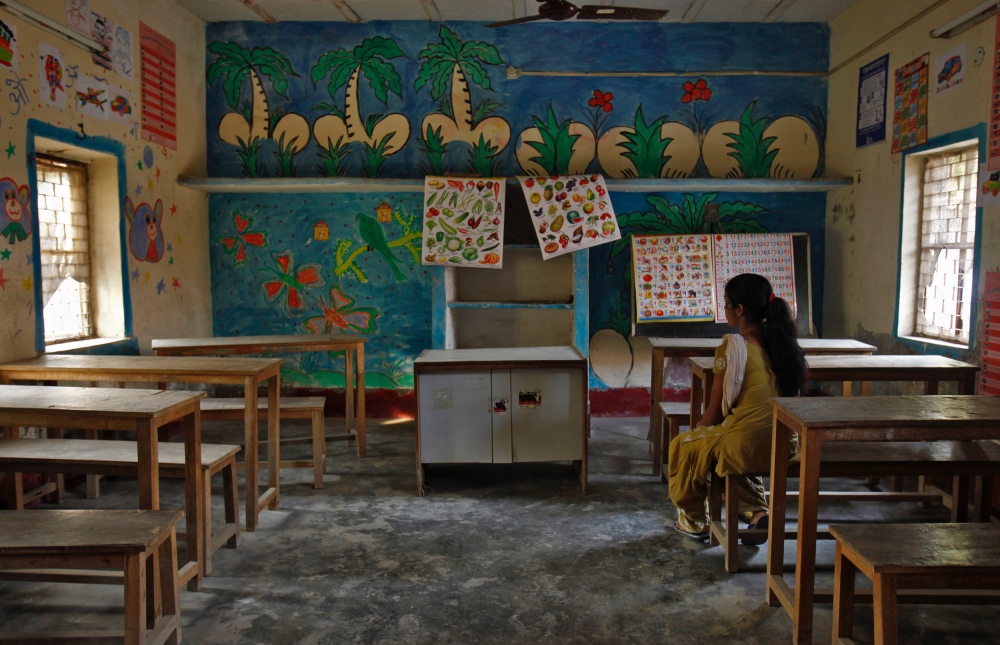Chennai, India
Thomson Reuters Foundation
An Indian state has set aside hundreds of college places for survivors of trafficking and sexual assault, a move welcomed by anti-slavery charities on Friday for helping improve the lives of rescued slaves.
The southern Indian state of Karnataka said this week that one per cent of all places in government-run colleges would be reserved, opening up higher education for trafficking survivors, acid attack and sexual assault victims and their children.
“Education is the gateway to a better life,” said Stanly Varghese, an official at charity Odanadi Seva Trust that led the campaign to secure the college places for survivors.
“This move will help women who have survived the utmost forms of cruelty to lead a life of dignity.”

A 16-year-old girl sits inside a protection home on the outskirts of New Delhi, 9th November, 2012. PICTURE: Reuters/Mansi Thapliyal/file photo
More than 23,100 human trafficking victims were rescued in 2016 in India, of which 60 per cent were children, government data showed.
Most were from the eastern state of West Bengal and forced into domestic work, prostitution and debt bondage across the country.
Rescued survivors have traditionally been put up in government and charity-run hostels and given vocational training in skills like embroidery and basket weaving and more recently computer training.
“Vocational training is not enough,” Varghese told the Thomson Reuters Foundation by phone.
“It does not guarantee a sustained livelihood, something these young women and girls need. A good education goes a long way in rebuilding lives.”
India already has job and education quotas for its lowest social classes, but this is the first time trafficking survivors will benefit from affirmative action.
“We realised that survivors were being forced into smaller jobs and caught in a cycle of poverty,” said Nagambika Devi, a senior official at the Karnataka higher education department.
“Education, we feel will empower them and better equip them for the future.”
Most trafficking victims have not completed their education and often find it difficult to return to school after being rescued due to the time that has elapsed, and this problem would first have to be tackled, human rights campaigners said.
“The move is welcome but the challenge is immense,” Varghese said. “We will have to invest a lot in bridging the learning gap for survivors and help them avail this rare opportunity to pursue a career.”





